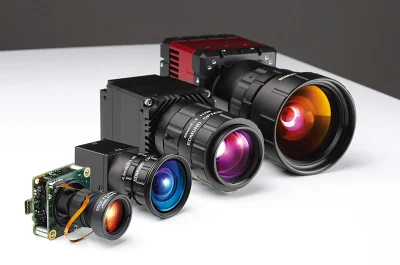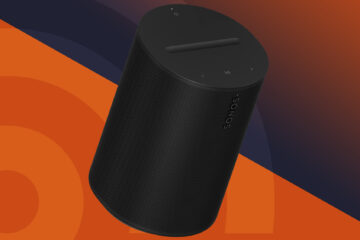New features are always being added to and existing ones are being improved upon in the greatest digital cameras. The most fascinating and promising developments in digital camera technology that we can expect shortly are listed below.
AI-Powered Tools
Cameras today employ artificial intelligence in a number of ways. AI is capable of analyzing digital images taken with your camera to determine the best exposure, tweak shadows and colors, and more. Even though you’ll still be shooting photos, the processes of selecting and modifying them will go more quickly and smoothly.
Artificial Intelligence is quickly making its way into cameras of all kinds, from security cameras to smartphones.
Say Goodbye to Shutter Button
Perhaps cameras of the future won’t need a shutter button. Alternatively, photographers could instruct the camera to take a picture by winking or giving a verbal command.
Manufacturers of digital cameras may take inspiration from Facebook’s Stories smart glasses. Users may operate the two front-facing cameras on Stories glasses with voice commands.
We appear to be well on our way to a digital camera without a shutter button, as Nikon has already figured out how to do away with the mechanical shutter while Canon has submitted a patent for an electronic shutter button.
Re-Inventing ‘Ultra-Compact’
A camera classified as ultra-compact typically has a thickness of one inch or less. Because they go into a purse or pants pocket with ease, these little cameras are very handy. Even smaller kinds of cameras in the future are probably going to completely reinvent this category.
The high-tech parts of cameras are getting smaller, so this prediction makes some sense. As with smartphones, touchscreens may eventually determine the size of the camera and remove all other controls and buttons.
Both the Docooler and Ailaah digital cameras are already available in small, pocket-sized versions, with a thickness of just 0.7 inches. Furthermore, it’s impossible to predict how thin digital cameras will get given that the PaperShoot Paper Camera can reach a 0.5-inch thickness standard.
‘Smell-graphy’
Although photography is primarily a visual art form, cameras of the future may allow for the addition of scent to photos.
It’s a fascinating concept to create photographs that arouse senses other than vision. A photographer may instruct the camera to record the scene’s scent, for instance, and incorporate it into the picture taken. Naturally, because not all scents are pleasant, this would have to be optional.
The field of “smell-graphy” is undergoing some work. This “Smell Camera,” described by the MIT Media Lab, uses a smartphone to communicate with a pump. The user would operate the pump to retain odors in a gelatin capsule, which would subsequently be used to “play” back the memory with all of its aromas.
Endless Battery Life
The modern digital camera is equipped with powerful rechargeable batteries that can take hundreds of images between charges. However, imagine having the option to have the camera charge itself while you use it, without the need to plug it in.
Incorporating a solar energy cell into the camera of the future would enable the batteries to run only on solar power or the excess energy it produces.
The camera might get significantly larger if it had a solar cell, but that would be an acceptable compromise for endless battery life.
A solar-powered digital camera shouldn’t be too long away, considering the existence of solar-powered video cameras and portable solar chargers.
Light Field Recording
Light field technology, used by Lytro cameras, has the potential to play a larger role in general photography in the near future. The process of light field photography is taking the picture and then deciding which area to focus on later.
After releasing its light field technology camera in 2012, Lytro hasn’t seen a spike in popularity. But after purchasing Lytro in 2018, Google has employed the technology in Project Starline, dubbed a “magic window” that lets you virtually meet someone face-to-face who is not in your immediate vicinity. Additionally, Apple was awarded a patent in 2021 for light field technology, most likely to provide gesture control over the iPhone cameras, thus enabling longer-range photography.
Having high-profile investors in light-field technology, it remains to be seen how light-field technology will be applied to digital cameras in the future.
No Light Required
There will soon be cameras that perform well in low or no light. The maximum ISO setting for modern DSLR cameras is 51,200. The ISO setting in a digital camera controls the sensitivity of the image sensor to light.
Surpassing Vision with Super Savings
To help you save money on large online purchases, ReeCoupons provides fantastic coupons and discounts for digital cameras. By using these verified discounts and deals when you shop, you can save time by looking for inspiration for your next big shot instead of visiting other places to find different deals.
After deciding on the type of digital camera you want to buy, check out ReeCoupons to receive the most recent featured digital camera coupons and promo codes at the most competitive prices that meet your budget.
Abt Electronics
Online retailer Abt Electronics offers a wide range of electronics and accessories. They make all kinds of electronic equipment and provide a large selection of anything from digital cameras to kitchen appliances to cellphones.
Vantrue
Vantrue is a high-end, cutting-edge technology brand in the market that offers professional dashcams at competitive costs. Explore and shop with ease for N4 Optional Series, N2S Optional Series, Video Baby Monitor, Single to 3-Channel Dash Cams, and many other products.
KUVRD
Their objective as professional photographers is to “Get the Perfect Shot.” However, there are usually concerns and errors leading up to and during a picture session (such as misplacing lens caps, failing to properly store equipment, etc.). In order to support you in continuing to acquire the “Perfect Shot,” KUVRD set out to address that issue and remove tension and worry. Bring on the Universal Lens Cap.
Conclusion
The leading players’ new technologies and adoption of new strategies will lead to more innovations being revealed in the global digital camera market. Compactness, extended battery life and backup, more mode options, and waterproof capabilities may undoubtedly be included to meet the specific needs of the market.




